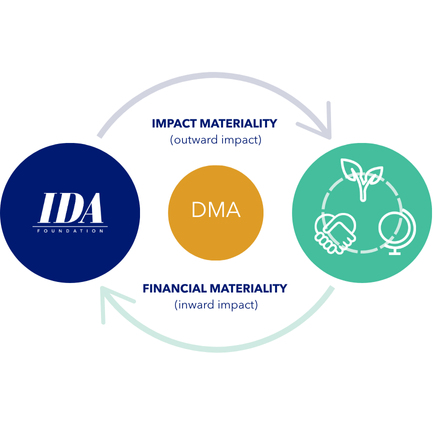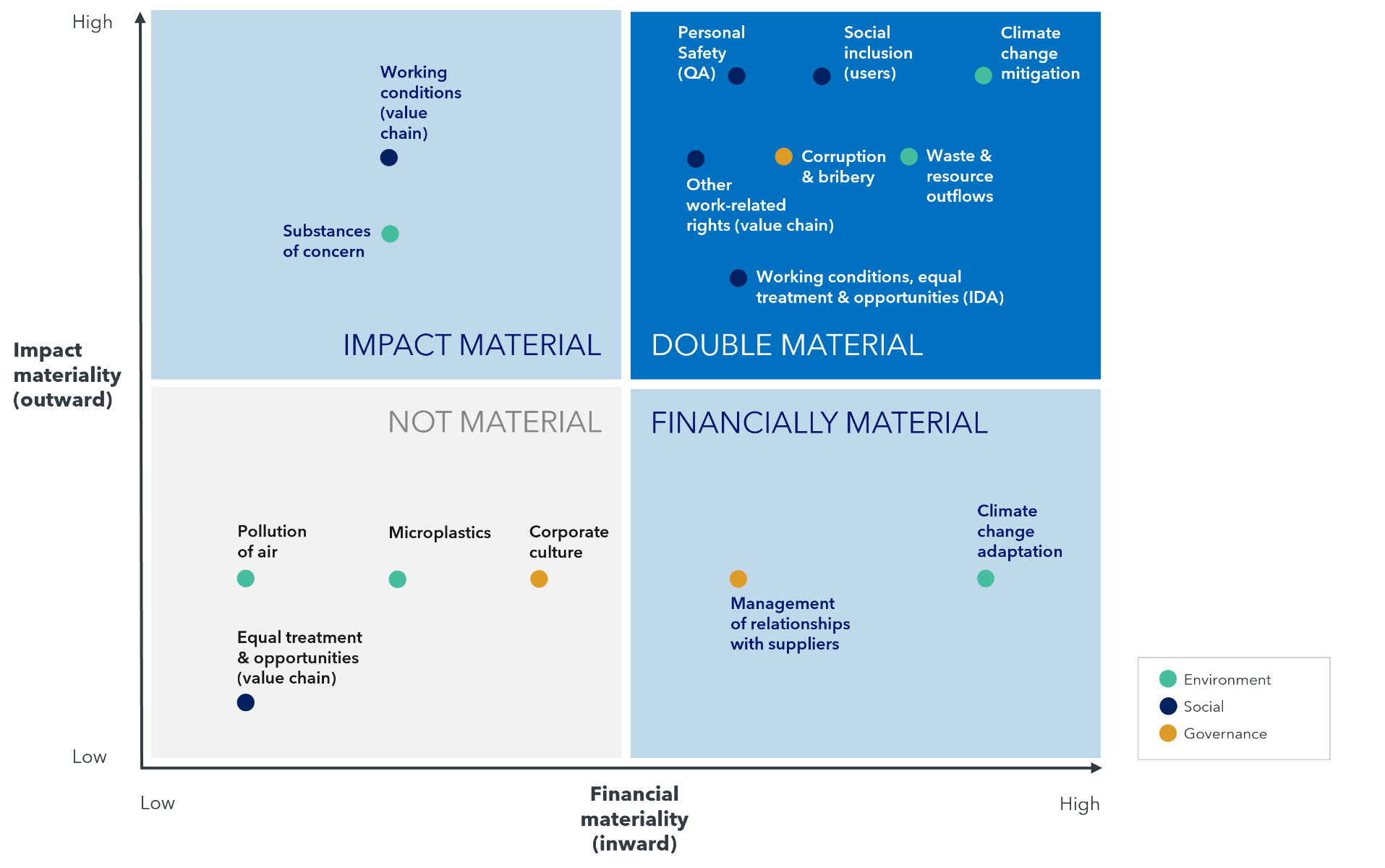Double Materiality at IDA Foundation: Refining Our Sustainability Priorities for 2030
Blog
At IDA Foundation, we believe sustainability is not just about compliance, it’s about ensuring that the way we operate truly matters to the people, communities, and environments we impact. That’s why we recently completed our first Double Materiality Assessment (DMA), in line with the EU Corporate Sustainability Reporting Directive (CSRD) and European Sustainability Reporting Standards (ESRS). You can find the DMA summary report here.
This DMA builds on our 2021 materiality assessment and providing a deeper understanding of both:
• Impact materiality (outward): how IDA’s activities affect people and the planet.
• Financial materiality (inward): how global sustainability developments affect IDA’s business.
By combining both perspectives, we can sharpen our focus on the sustainability topics that matter most, both to our stakeholders and to our mission of improving access to quality-assured medicines and health products in low- and middle-income countries.
Why we conducted the DMA
With sustainability expectations evolving quickly, it was crucial to reassess our priorities and align them with CSRD standards. The DMA ensures that our sustainability strategy is robust, forward-looking, and responsive to the challenges and opportunities in global health supply chains.
How we did it
The DMA followed a five-step methodology, including:
1. Value chain and stakeholder mapping – over 50 stakeholder groups identified, from suppliers to regulators.
2. Topic identification – narrowing down from 37 sub-topics to 16 relevant and pot areas.
3. Stakeholder engagement – 87 respondents ranked topics via a sustainability survey.
4. Impact materiality scoring and validation – workshops and focus groups with IDA teams and external key stakeholders.
5. Financial materiality scoring – assessing risks and opportunities with input from our Management Team.
What we found
From this process, 11 topics were confirmed to be material for us:
• 7 double material topics (both impact & financial significance)
• 2 impact material topics
• 2 financially material topics
These represent areas where IDA can achieve the most meaningful positive impact and where risks or opportunities are greatest for our business.

Input from partners and stakeholders
The DMA would not have been possible without the active involvement of our network: clients, suppliers, funders, global health organisations, regulators, and employees. Their perspectives ensured that our findings are grounded in both real-world impact and business realities.
Outlook to 2030
Looking ahead, the DMA outcomes will help us:
• Set measurable sustainability targets for each material topic.
• Standardise our reporting to meet ESRS/CSRD requirements.
• Continue engaging stakeholders across our value chain.
• Strengthen IDA’s role as a partner in delivering sustainable access to medicines worldwide.

